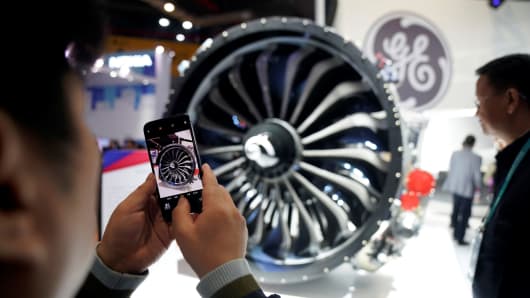Diamond News Archives
- Category: News Archives
- Hits: 1148
Liberal economist Paul Krugman proclaimed earlier this year that “gold is dead.” An Economist article stated that “there is no point in investing in gold, any financial investment is better.” And Warren Buffett, one of the most successful investors of modern times, has never liked gold.
So should we just give up on gold? Is it really a brave new world where modern finances have no need for a barbarous metal? I can understand how one might be tempted to think so, especially with the persistent weakness in price.
There’s just one problem: we've seen this behavior in gold before—and it didn’t last.
Gold’s biggest modern day bull market lasted the full decade of the 1970s. But in the middle of that run, the price fell relentlessly over a 20-month period. From December 30, 1974 to August 25, 1976, gold declined a whopping 47% (based on London PM fix prices).
That had to be tough time for gold investors. The price was in a downward spiral for most of 1975—and then cratered even more in 1976. It just couldn’t seem to catch a break. The downtrend wore on and on, pushing many investors to give up. Most pundits declared gold dead.
Sound familiar? As you’re about to see, there were plenty of negative commentators about gold then, too, all of whom found out not too long afterward just how horribly wrong they were.
I spearheaded this research when I was at Casey Research. At the time I enlisted the help of two local librarians, along with my wife and son, to dig up some quotes on gold from 1976. The process wasn’t easy; publications weren't in digital form yet, so online searches yielded poor results or weren’t sourced properly. Our...
- Category: News Archives
- Hits: 1059

(IDEX Online) – IBM projects year-on-year retail sales growth of 4.83%, compared to 4.2% in 2017, due to ongoing high levels of consumer confidence. <?xml:namespace prefix = "o" ns = "urn:schemas-microsoft-com:office:office" /?>
Jewelry sales are seen rising by 5.2%, although consumer appliances lead all product categories with a 15.2% projected increase, followed by clothing.
"Weather conditions will affect what people buy and when," IBM said in a statement. "For instance, a milder November will lead to decreased demand for items such as snowblowers and cold-weather apparel but increased demand for purchases such as electronics and toys."
Michael Haydock, IBM Fellow, VP & Chief Scientist with IBM Global Business Services, said: "The retail industry is extremely dynamic and a host of powerful factors such as the economy, fast-moving market trends and consumer confidence all come into play. With AI (Artificial Intelligence) and advanced analytics, we can get the experience just right for discerning consumers when they walk into the store.
"The interplay of machine learning augmenting human customer service is the winning combination to help the retail industry better serve the consumer. Uncovering and leveraging patterns that are not obvious make the retail experience both fun and advantageous for the consumer. It makes every experience feel like it was composed just for them."
IBM's 2018 Holiday Retail Forecast uses data originating from the U.S. Census Bureau, which captures total sales observations from over 46,000 retail establishments. IBM consultants use the forecast to help retail clients address complex issues related to supply and demand, plan product mix, and determine new store locations, staffing and advertising spend....
- Category: News Archives
- Hits: 1233

Aly Song | Reuters
A man takes a picture of a General Electric (GE) engine during the China International Import Expo (CIIE), at the National Exhibition and Convention Center in Shanghai, China November 6, 2018.
How General Electric (GE) resolves its debt problem will be "critical" to the wider Investment Grade (IG) market, an analyst said Monday.
The General Electric Company has witnessed an exodus of investment from both its equity stock and corporate debt as its future has been called into question. The U.S. behemoth has piled on the debt in recent years as it looked to buy companies, pay off its pension deficit and buy back shares.
In October, the ratings agency S&P lowered its corporate debt status from "A" to "BBB+," citing the firm's high level of debt and below-trend cash flow.
"The GE story, because it is such a massive pile of the corporate credit market and the IG market, how that plays out is kind of critical to the IG market," Bob Janjuah, Nomura's senior independent client advisor, told CNBC's "Squawk Box Europe."
Janjuah said that despite decent cash levels on an aggregate basis, a little bit of investigation reveals alarming imbalances in corporate America.
"If you break it down, you realize that the vast bulk of that cash holding is by about eight companies and that most of corporate U.S. is actually more levered than it has ever been," he added.
Total U.S. corporate debt has swelled[1] from nearly $4.9 trillion in 2007, when the global financial crisis was becoming apparent, to nearly $9.1 trillion halfway through 2018, according to Securities Industry and Financial Markets Association (SIFMA) data....
References
- Category: News Archives
- Hits: 958

(IDEX Online) – Despite an increase in sales and profit in the first half of this year, Hong Kong's Tse Sui Luen Jewellery fears the impact of the US-China trade war on business. <?xml:namespace prefix = "o" ns = "urn:schemas-microsoft-com:office:office" /?>
There has been rising retail sentiment in Hong Kong since September last year boosted by higher numbers of mainland tourists and growing sales to local customers, said Chairwoman Annie Yau.
“However, the recent outbreak and escalation of trade dispute between China and the US has cast some doubts on the economic outlook for both the global and local economies going forward. One consequence has been the devaluation of the [Chinese currency] Renminbi during the period, which could bring certain influence to our business in Hong Kong and Mainland China during the remainder of this financial year.
“While it is still too early to conclude the actual impact on the group’s performance, we will continue to take a cautiously optimistic approach in our major operating regions, namely Hong Kong and Mainland China,” said Lau.
The jeweler posted a sales increase of 10.2% to HK$1.91 billion ($244 million) in the six months to July (the company changed its financial year to September, so comparative figures are based on the six months to August 31 last year).
There was an increase in sales in Hong Kong and Macau of 15.3% during the half year, while same-store sales growth for all businesses in the areas were up 14.8%. Retail rental costs in Hong Kong were unchanged and “at a more reasonable level than that experienced in past years”, enabling the jeweler to expand its retail business...
- Category: News Archives
- Hits: 1080

(IDEX Online) – Botswana has put together a negotiating team for talks with De Beers about the sides' next sales agreement which is set to replace the current agreement which runs out in 2020.<?xml:namespace prefix = "o" ns = "urn:schemas-microsoft-com:office:office" /?>
Botswana wants to significantly increase its share of independently marketed and sold rough to 30% from the current 15% that was agreed in 2011, according to an industry source.
Botswana also reportedly wants to be more heavily involved in setting rough prices for its goods which are currently decided almost singlehandedly by De Beers.
President Mokgweetsi Masisi delivered a keynote address at a diamond conference held in Gaborone earlier this month when he said, “Through our partnership with De Beers, there has been over the years, increased participation in the diamond pipeline from prospecting through to cutting and polishing. Our historic 2011 sales agreement was instrumental in achieving these milestones. We, however, need to move further up the pipeline to jewelry manufacturing and retail.”
He said beneficiation remains a key objective of Botswana’s economic diversification drive in the diamond sector. Despite the desire of the Botswana government to create more jobs by cutting and polishing stones in the capital of Gaborone, there have been big cuts in manufacturing sector jobs in recent years.
Some industry observers have said that creating manufacturing infrastructure from scratch along with the training costs and ongoing manufacturing costs was always unfeasible since diamonds can be manufactured more cheaply in India.
Most of Botswana's diamond output is mined by Debswana, a 50-50 joint venture between the government and De Beers. Anglo American owns 85%...

